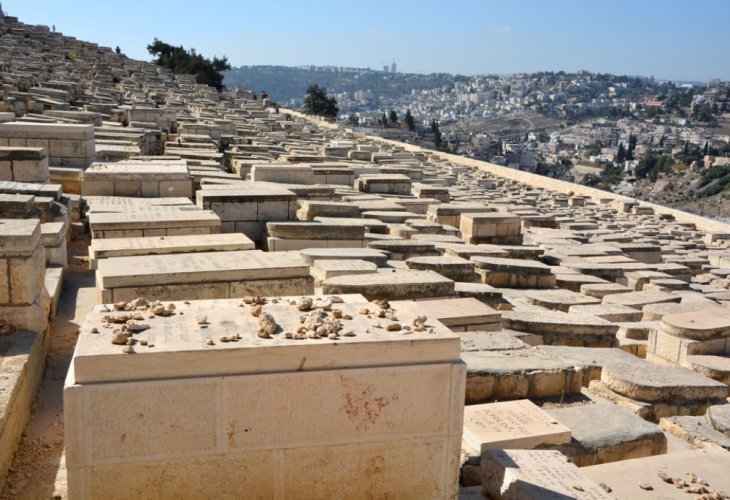Personal Stories
The Promise That Saved His Life
In the middle of war, one Jewish soldier made a promise that would later save his life in a miraculous way.
 (Illustration photo: shutterstock)
(Illustration photo: shutterstock)The great storyteller and Torah teacher Rabbi Shalom Shvadron, once shared an incredible story. He heard it directly from the man who lived it, a tale of Jewish courage, faith, and an unwavering commitment to honoring the dead.
During World War I, a young Jewish man from the town of Stochyn was drafted into the Russian army and sent to the front lines to fight the Germans. Life in the trenches was terrifying. Soldiers were constantly digging in, hiding behind sandbags, and firing into enemy territory while deadly bullets whistled overhead.
Next to this young man in the trench stood another Jewish soldier, around forty years old. Suddenly, that older soldier was hit by enemy fire. As he lay dying, he turned to the younger man and whispered one final request: “Promise me you’ll bring me to a proper Jewish burial.”
The young man promised. He felt it deep in his soul, this was a sacred vow.
But hours passed, and the battle only grew louder and more dangerous. “How can I possibly keep my word?” he wondered. Yet he reminded himself, “I gave my word to a fellow Jew. I must fulfill it no matter what.”
So, with great courage, he lifted the lifeless body onto his shoulder and ran. Bullets rained around him. Enemy fire came from every direction. He passed Cossack soldiers known for their cruelty, yet somehow they didn’t see him. Hashem had blinded their eyes.
He carried the body for nearly two miles under fire, until he reached the Chevra Kadisha, the Jewish burial society, in Stochyn. He handed the body over to ensure it would receive a proper Jewish burial. Then, as if nothing had happened, he ran back to the trenches. Not even his Russian commanders noticed he had been gone.
Time passed. The Germans eventually captured Stochyn, and the young man was allowed to return home. But not for long. The German army drafted him next this time as an “animal caretaker.” Still, it seemed he couldn’t escape matters of life and death.
One day, while tending the animals, he heard a single gunshot. He looked up and saw a soldier fall to the ground. No one else was nearby, and it was clear that the soldier had taken his own life.
Without hesitation, our hero ran to him. He forgot about the animals and thought only of the fallen soldier. Maybe he could still save him! When he reached him, the soldier was still breathing. Quickly, the young man tore off his shirt to use as bandages. He tried to stop the bleeding. But Hashem had other plans. The soldier died in his hands.
Just then, other German soldiers arrived. Seeing one dead soldier and another alive next to him, they assumed the worst. They arrested the young Jew, bound him, and threw him into a military prison.
Within hours, he was placed on trial. Despite his tearful pleas and insistence that he had only tried to save the man’s life, the court sentenced him to death. The execution was set for noon the next day. He would be shot by a firing squad.
That night, locked in a dark and suffocating cell, he lay awake, waiting to die. Half-dreaming, half-awake, he suddenly saw the face of the Jewish soldier he had buried in Stochyn, the one to whom he had made that sacred promise.
“Why are you afraid?” the soldier asked him gently. “Don’t fear. Because you brought me to a Jewish burial, you will be saved! Even if you stand at the gates of death, they will not kill you.”
The vision faded. Was it real? A dream? A message from Heaven?
The next day at noon, he was led out to the field. Blindfolded, he stood before the firing squad. The countdown began. “One!” called the officer. “Two!” and then, just before “Three!”, a voice cried out in the distance.
A soldier came galloping on a horse, waving a white handkerchief.
“Stop! Wait! Don’t shoot!” he shouted.
In his hand was a letter. It had just been discovered in the dead soldier’s pocket. In it, the soldier said goodbye to his family and explained that he had chosen to end his life.
The truth had come out just in time.
The young man’s blindfold was removed, and he was set free. At last, he understood, it hadn’t been just a dream. It was real. His act of self-sacrifice, his deep commitment to Jewish burial and honoring the dead, had brought him a life-saving miracle.

